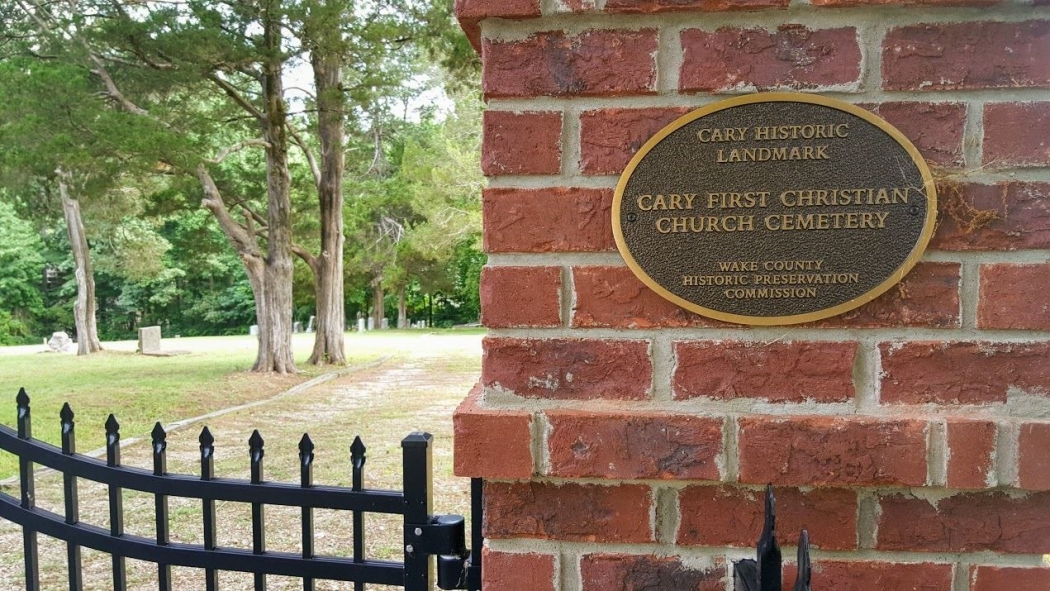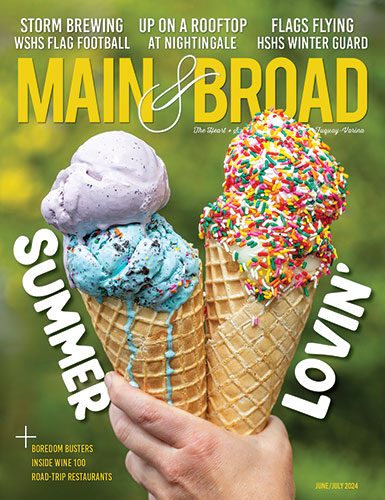Cary residents don’t have to go far to learn about, and see for themselves how Black history has helped shape the community around them.
The African American History Driving Tour is a self-guided journey with stops around Cary that mark historically significant buildings and why they are important to the story of Cary.
Though not meant to provide a comprehensive history, the driving tour was put together by town staff as part of Cary’s sesquicentennial celebration in an effort to preserve and draw attention to the history behind the places that make up the community, in this case the Black community in Cary.
While she did not help plan the driving tour, Jennifer Hocken, a historical and cultural program specialist with the Town of Cary, recently hosted “Backyard History: Cary’s African American Community.” One of a series of discussions about the history of Cary, the presentation was hosted by the Friends of Page-Walker, the Town of Cary and the Cary Library.
“We’re trying to look at so many of our communities because we have so many different groups living in Cary who’ve come from so many different regions and so many different influences coming in,” Hocken said.
Site of original Mount Zion Baptist Church
Located at 8500 Chapel Hill Road, the first stop on the self-guided tour is the original site of Mount Zion Baptist Church.
The wooden building situated near the historically Black Kingswood neighborhood was originally built just after the Civil War in 1867 and has served as a community hub and religious center for African Americans for generations.
In 1968, it became the first preschool for Black children. Today, the building serves as a touchpoint for the Black community that began staking its claim in the community just after being freed from enslavement. In 2021, the church is vacant, though it has served various congregations over the years. The parking lot is accessible from Chapel Hill Road.
Union Bethel AME Church
Also colloquially known at one time as “the Blake Church” this church at 514 North Academy St. was established by Addison and Mintie Blake in 1898, as part of an area that would become known as “Blake Hill.”
A stop here at this historical church connects past and present as the church started 123 years ago is still active today.
Kingswood Elementary
The Cary elementary school located at 200 East Johnson St. is one of several historically Black schools in the town. Kingswood Elementary School is located near the original Cary Colored Elementary School, which burned down in 1936.
A new school replaced it in 1937, then was rebuilt as a brick building in 1953. By 1969, what is known today as Kingswood Elementary School was fully desegregated.
Kingswood Elementary also brings attention to the historic Kingswood neighborhood, a prominent Black neighborhood established north of downtown in the 1880s. In the 19th century, Kingswood was home to some of the most successful and politically active Black people in Cary. Its community power was undercut by the North Carolina General Assembly in 1899 when it redistricted the Town lines to exclude the neighborhood. This cut the Black population inside the Cary limits at the time from 33% to just 7%.
West Cary Middle School
Today known as West Cary Middle School, this school located at 1000 Evans Road opened in 1965 as Cary’s first Black high school, then called West Cary High School.
The school was established after the Evans family, the namesake of the road its located on, petitioned to have the road paved earlier in the 1960s. This provided the eventual infrastructure for some of their land to be sold to the Wake County School system for the school.
During the 1967-1968 school year, the school was desegregated, becoming West Cary Junior High for ninth-grade students.
Cary First Christian Church
A short trek down Evans Road you will find Cary First Christian Church, one of the oldest Black churches in Cary. The original church building was established in 1883, but the church moved to its current location at 1109 Evans Road in 1968.
A Cary institution, the entire building that stands today was built by the congregation on land donated to the church by Clyde Evans, Sr. The original church bell, seen from the parking lot off Silvergrove Drive, was moved to the location in 2018.
Cary First Christian Church Cemetery
This cemetery was founded behind Cary First Christian Church as early as 1867, and is the burial ground for some of Cary’s most influential Black figures of the 19th and 20th century. Located at 300 West Cornell Road, the cemetery was dedicated in 2013 as a historical landmark, representing one of the earliest institutions African Americans established in Cary after the Civil War.
“Once freed from slavery, Cary’s African American residents had to come together to set up their sacred burial ground,” said Town of Cary historical and program specialist Jennifer Hocken during a recent event called ‘Backyard History: Cary’s African American Community.’
“It was important because during the previous 100 more years, it would have been unlikely for an enslaved person to have their final resting place recorded. At the same time, segregation would have barred them from entrance to Hillcrest Cemetery, the town’s main burial ground.”
Turner-Evans Cemetery
The privately-owned cemetery is located on land owned by the Turner and Evans families at 800 Old Apex Road.
Members of the Turner and Evans families, who are both Cary Heritage Families, are buried here, among other African Americans. The earliest-known grave on site is 1914, making it a more recent African American cemetery. The Turner-Evans Cemetery is not open to the public.
For more information about the driving tour, visit cary150.org/past/tours.







I am so happy to see this educational piece about the Black History of Cary. So glad to be familiar with all of the sites and know a little about all of their history. I remember working to reclaim the Cary First Christian cemetery on Cornwall many Saturdays with Cary First being the church that my kids were raised in. A bit of trivia: “When the town boundaries were changed to exclude the Negroes, legend has it that only one Negro , the school janitor remained inside the Cary town limits.” See around and about Cary December 1970 edition. We have come a long way, still a lot of opportunities.
Thanks again for getting the word out.